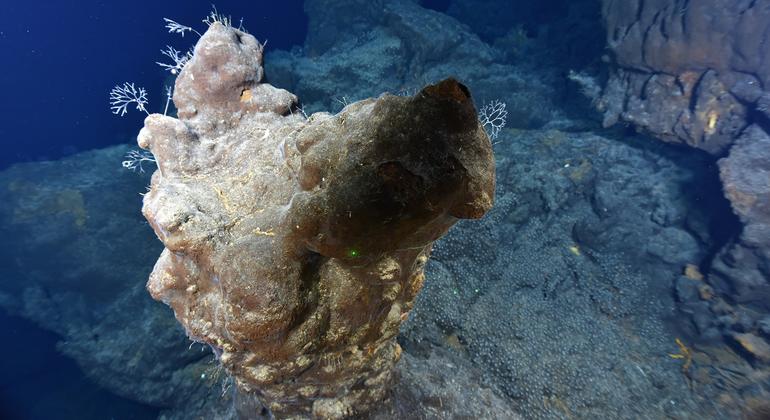Certainly! Here’s the translation to American English:
—
The International Seabed Authority (ISA) is celebrating its 30th anniversary by reaffirming its essential role in regulating deep-sea waters, which fall outside the jurisdiction of national authorities. Amid an increasing interest in the exploitation of rare minerals, Leticia Carvalho, its director, highlighted in a recent interview that while the United States has issued an order to grant licenses in these international areas, its lack of membership in the ISA means it operates independently, whereas the international community remains united around the rule of law.
Carvalho stated that the ISA has the knowledge and capabilities necessary to regulate deep-sea mining, emphasizing that the seabed does not belong to any particular country under international law. In this context, she called on the United States to consider joining the organization, underscoring the global commitment to protecting these resources.
The ISA is developing a mining code aimed at preventing over-exploitation of the seabed and ensuring it does not become a “Wild West” for mineral extraction. Despite the growing interest in these resources, which are essential for modern technology, commercial mining has not yet begun, awaiting the completion of this code. So far, the organization has granted a total of 31 exploration contracts to 21 companies in 20 countries.
A UN report indicates that companies face significant challenges, including high operational costs and technical difficulties in the marine environment, even when a regulatory framework is established. António Guterres, the UN Secretary-General, has emphasized that the international seabed is a “common heritage of mankind.” In his remarks during the ISA anniversary, he stressed the need to approach ocean exploitation with caution, in line with biodiversity conservation and the fight against climate change.
In addition to its regulatory work, the ISA has introduced a Deep-Sea Biobank, aimed at collecting and conserving samples from the ocean floor. This effort not only seeks to protect marine biodiversity but is also intended to benefit developing nations. Carvalho emphasized the importance of valuing and protecting the seabed, projecting a more sustainable future for the planet’s oceans.
—
Let me know if you need anything else!
via: MiMub in Spanish
